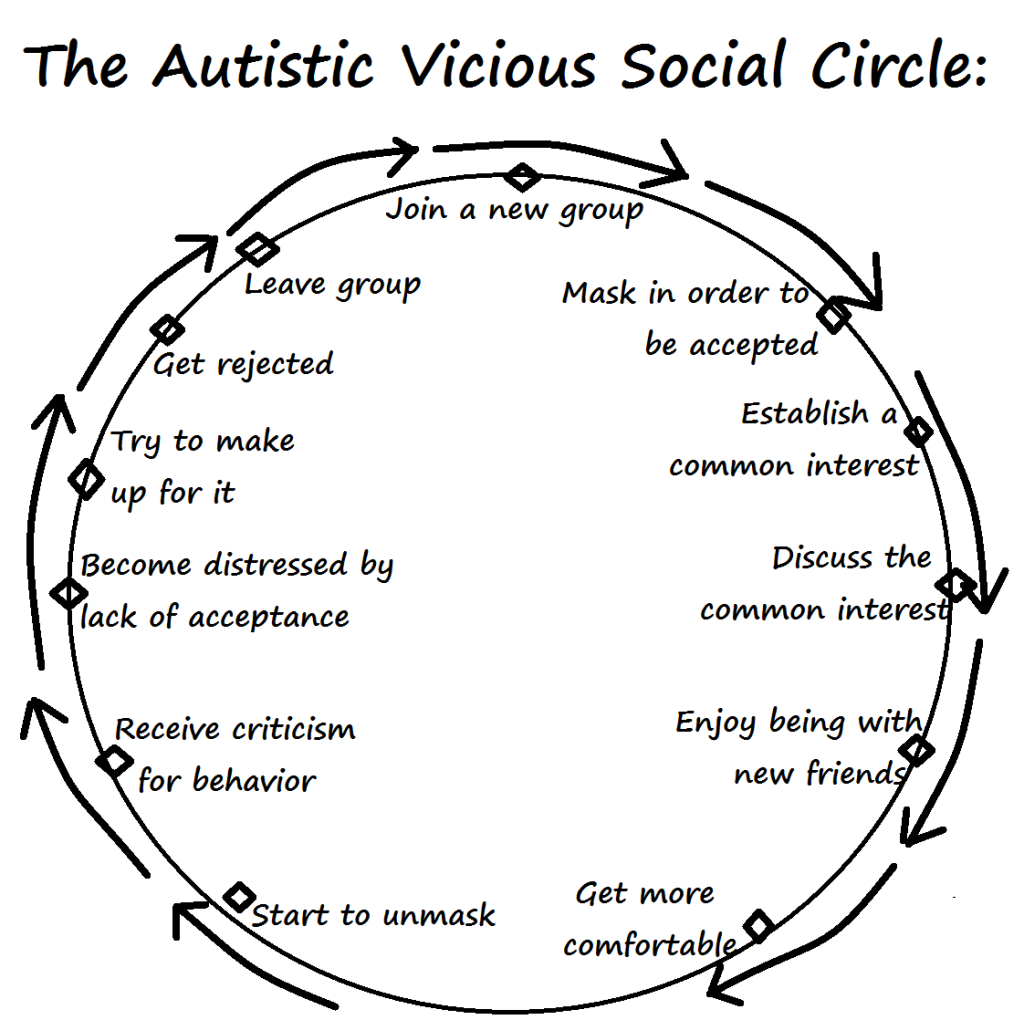“Me debunk an American myth, take my life in my hands?”
So goes the first line of one of my favorite Tragically Hip songs, “At the Hundredth Meridian.” And let me tell you, there aren’t many myths more American than the myth that autism can be cured, much less prevented. (This seems like a good place for a reminder that a crowd called “Cure Autism Now” is one of the component rabbles of Autism Speaks-for-itself, which was founded and headquartered in New York City.) And there is NO myth, American or otherwise, that I’m more committed to debunking, even — or especially — if I’m taking my life in my paws.
Not far from where I used to live in Massachusetts, there was an office building with the words “AUTISM INTERVENTION CENTER” spelled out on its side. The first time I saw this, I frowned, bristled, arched my back and hissed. I asked myself, whence comes this need to “intervene” in the development of an autistic child? Do we feel the need to “intervene” in the development of any other child, or only those who have trouble with communication and self-expression in a manner to neurotypical liking? Seems a little discriminatory, if you ask me.
It strikes me that such “intervention” is meant to alter a child’s growth so they can act more “normal” (though all they’re really doing is learning to hide themselves for self-preservation’s sake). So I will ask again: Why is it necessary to intervene in any child’s growth? Why not just let their development run its course, and better yet, aid it? As the child grows older, observe their progress and take note of what what really interests them, whether it’s mathematics or languages or sciences or maybe even music and theater; and cultivate that which really interests them and help them develop it into a life’s work.
As a matter of fact, for the sake of changing perceptions, I think “aid” is a much more appropriate term than “treat.” Treatment suggests that autism is an illness, and needs to be cured.
Well… *turns on shoddy, skippy vinyl record player* AUTISM IS NOT A DISEASE. As a matter of fact, when it comes to life coaching and skill learning for young autistic people, what say we just stop calling it “treatment” and start calling it “aid”? Seems a lot more appropriate to me. Aiding young autistic people implies that you’re actually HELPING them to track down what they’re best at — hell, there are plenty of non-verbal autistics who excel at math, visual art, maybe even physical activity. And verbal or non-verbal, if they’re provided with the aid and accommodation they need, should they still be treated as something less than human?
Full stop: They never should be treated that way to begin with.
Neurotype notwithstanding, it takes years, but brains grow and change the same as bodies, no matter who they belong to. It’s called “learning.” Learning that something’s drastically wrong with you and everyone is always going to hate your guts unless you behave properly (read: ABA) is not going to teach you anything. Learning that there’s something great you can do and that it’s possible to achieve opens up a much wider, brighter path for your life.
Being treated, in a medical sense, teaches you that you’re ill and broken and need to be taken apart and rebuilt into something you never wanted to be. Being AIDED teaches you that it’s possible to live your life doing something you’re good at. I’m thinking of a fella in southern Massachusetts who made the New England Cable News years ago by being a vastly skilled computer artist and architect. When he gave his interview, he never once looked the interviewer in the eye and he spoke in a hushed, inconspicuous tone, but he made mention of the excellent living he made doing this work he’d been permitted to do because he was good at it – and no one felt the need to “intervene” in his behavior or socialization skills.
If we want to intervene in something, let’s intervene in this NT mentality that all autistic children have to be “cured” or “made better” somehow. Let’s allow autistic youngsters to be themselves, let’s see what they can do… and then, most importantly, let’s step back and let them do it (as long as it isn’t contrary to the just laws of the land). THEN let’s see what kind of world they create for future generations, if they’re just allowed to do what they were put on this earth to do, instead of being forced to waste half their lives on trying to fit in.
There goes the record player again, AUTISM IS NOT A DISEASE.
I think what’s needed here (I’m looking at you, mental health professionals) could fall under the paradigm of Autistic Inclusion. Something whereby we can help all autistic people, both children AND adults, by not trying to “cure” them but trying to aid them in finding their place. Because we all have a place, an important place, a place into which each of us uniquely fits, and the biggest help you can possibly offer is in finding it, filling it and making a positive change in the world.
Autistic Inclusion. Let’s see it done.
